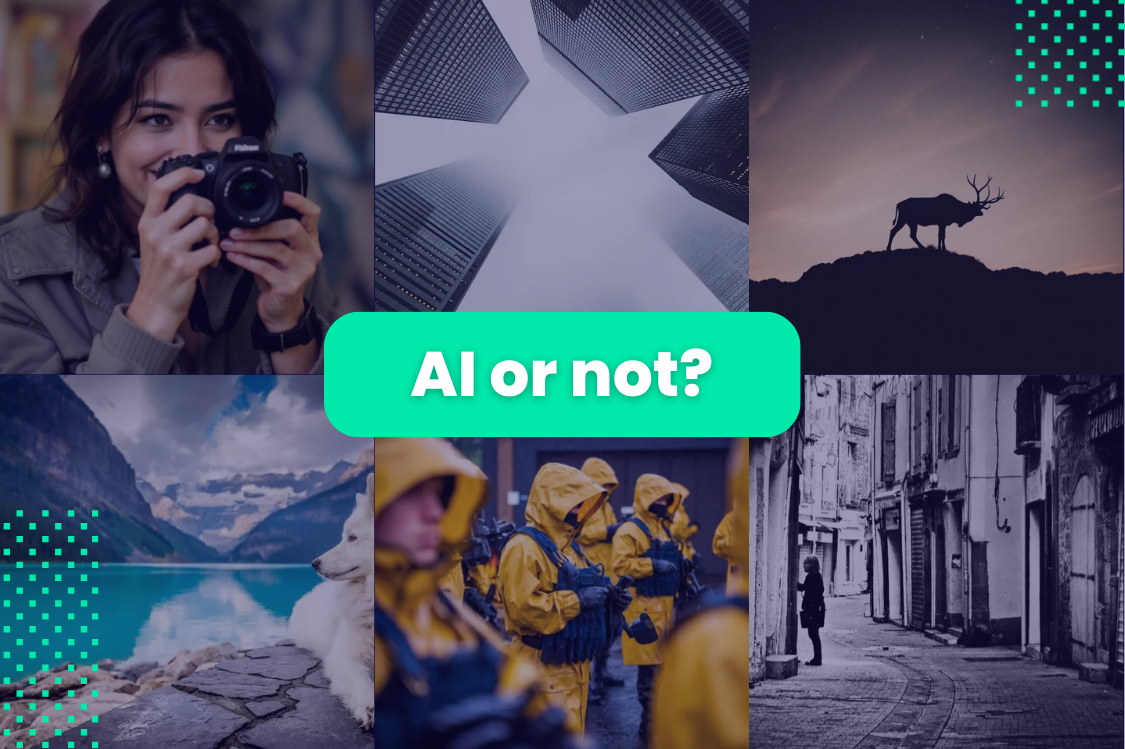
Authenticity & AI Detection
June 14, 2024
California's Groundbreaking Legislation: The "California Provenance, Authenticity and Watermarking Standards Act"
⇥ QUICK READ
<div class="hs-cta-embed hs-cta-simple-placeholder hs-cta-embed-116492913348"
style="max-width:100%; max-height:100%; width:170px;height:520px" data-hubspot-wrapper-cta-id="116492913348">
<a href="https://cta-eu1.hubspot.com/web-interactives/public/v1/track/redirect?encryptedPayload=AVxigLLehWJ%2FT5pxDsLJlls3YKTMniFVJAhtr9Gj1dIqr53fXjMdWtEzIHnMgWB0Oo20FGIzbHLMjEQC2s7qZSXiermwpBmIEz7EjlBlf9k6qkgL9Ag%3D&webInteractiveContentId=116492913348&portalId=4144962" target="_blank" rel="noopener" crossorigin="anonymous">
<img alt="Do you know which laws apply to you?" loading="lazy" src="https://hubspot-no-cache-eu1-prod.s3.amazonaws.com/cta/default/4144962/interactive-116492913348.png" style="height: 100%; width: 100%; object-fit: fill"
onerror="this.style.display='none'" />
</a>
</div>
Share this article
Subscribe to the blog!
I subscribeDiscover the "California Provenance, Authenticity and Watermarking Standards Act" – a groundbreaking 2024 legislation aiming to authenticate synthetic and real content. Learn about its key provisions, including mandatory AI-generated content watermarks, labeling requirements for online platforms, and its potential global impact on digital content transparency and safety.
In February 2024, California introduced a pivotal piece of legislation known as the "California Provenance, Authenticity and Watermarking Standards Act." Currently under review by the California State Senate, this bill sets forth a comprehensive framework aimed at authenticating both synthetic and real content. Here’s a detailed look at what this legislation entails and its potential impact.
In light of the widespread adoption of generative artificial intelligence (Gen-AI) technologies that are increasingly able to generate inauthentic images, audio, video, and text content, usually called “deepfakes,” it is increasingly important that the provenance of this content be clearly disclosed and labeled in ways that could both prevent harms, reduce the severity of harms, and also make it more difficult and costly for bad actors to cause these harms.
From politics to public safety, disinformation can have a multiplicity of negative impacts on society. It can skew election results, as may have been the case with a convincing audio deepfake in Slovakia. In the lead up to the 2024 United States elections, we have already seen candidate- and party-produced advertisements using deepfake audio and video content. A deepfake of an explosion at the Pentagon caused a brief but significant stock market dip.
For the above-described reasons, the act aims to provide the public with tools to understand how the content that they see across digital media was produced and if it is, in fact, authentic, AI generated, or authentic with minor modifications by AI.
Key Provisions of the Act
1. Implementation of Watermarks by AI Providers
Starting February 1, 2025, providers of AI-generated content (IAGen) will be required to embed imperceptible and indelible watermarks within synthetic content. These watermarks will contain provenance data, ensuring the traceability of significantly altered or created content.
2. Labeling Requirements for Online Platforms
From March 1, 2025, major online platforms will need to visibly disclose provenance data found in watermarks or digital signatures within the content distributed to users. This aims to enhance transparency and allow users to identify the origins of the content they consume.
3. Watermarking Capabilities for Recording Devices
By January 1, 2026, all newly manufactured digital cameras and recording devices sold or distributed in California, including smartphones, must offer users the option to embed watermarks indicating authenticity and provenance in the content they produce. For devices purchased before 2026, the bill mandates a firmware update to add watermarking capabilities.
In a previous version of the Act (deleted at this time), it has required all producers of media to embed maximally indelible and privacy-preserving content provenance data into the content that they generate, whether AI generated or authentic. Should this provision be reintegrated, the act should be a must-piece with a 360° approach.
The Definition and Importance of Watermarks
According to the bill, a watermark is defined as "a watermark designed to be as difficult to remove as possible using advanced techniques and relevant industry standards." This stringent definition ensures that watermarks remain a robust tool against content tampering, aligning with solutions provided by companies like IMATAG.
Annual Risk Assessment Reports
The Act requires AI content providers and major online platforms to submit annual risk assessment and mitigation reports concerning synthetic content. These reports, audited by independent bodies, mirror the spirit of the European Union's Digital Services Act, aiming to uphold rigorous standards of content integrity and safety.
Penalties for Non-Compliance
Non-compliance with the Act could result in hefty fines of up to $1,000,000 or 5% of the company’s global turnover, whichever is higher. This significant penalty underscores the seriousness of the legislation and its commitment to maintaining high standards of content authenticity.
Broader Implications and Global Reach
This legislation is particularly noteworthy as it targets not only AI-generated content but also real content created by individuals using recording devices. This comprehensive approach contrasts with the European AI Act, which focuses solely on AI-generated content. Given that many AI content providers, major platforms, and recording device manufacturers are based in California, the impact of this law is expected to extend far beyond the state's borders, potentially influencing global practices.
A Global Perspective
The need to watermark AI-generated but also genuine content is critical in today’s digital age. This approach is echoed in the recent UN resolution A/78/L.49 and the recommendations from Reporters Without Borders (RSF), highlighting a worldwide shift towards greater content authenticity and transparency.
Conclusion
The act was adopted by the California Assembly on May 22, 2024 with a vote of 62 for, 0 against, and 18 abstentions. It still has to pass the Senate and the Governor with a good chance to be adopted.
The "California Provenance, Authenticity and Watermarking Standards Act" represents a significant step forward in the regulation of digital content. By implementing stringent watermarking requirements and transparency measures, California aims to set a new standard in content authentication that could have far-reaching implications globally. As this bill progresses through the legislative process, it will be crucial to monitor its development and the broader impact on the digital content landscape.

Want to "see" an Invisible Watermark?
Learn more about IMATAG's solution to insert invisible watermarks in your visual content.
Book a demoThese articles may also interest you

Authenticity & AI Detection
January 16, 2026
CES 2026: What the AI Hype Still Misses About Image Authenticity

Authenticity & AI Detection
December 16, 2025
Detecting AI-Generated Images: Why Robust Watermarking Standards Matter

Authenticity & AI Detection
July 8, 2025












